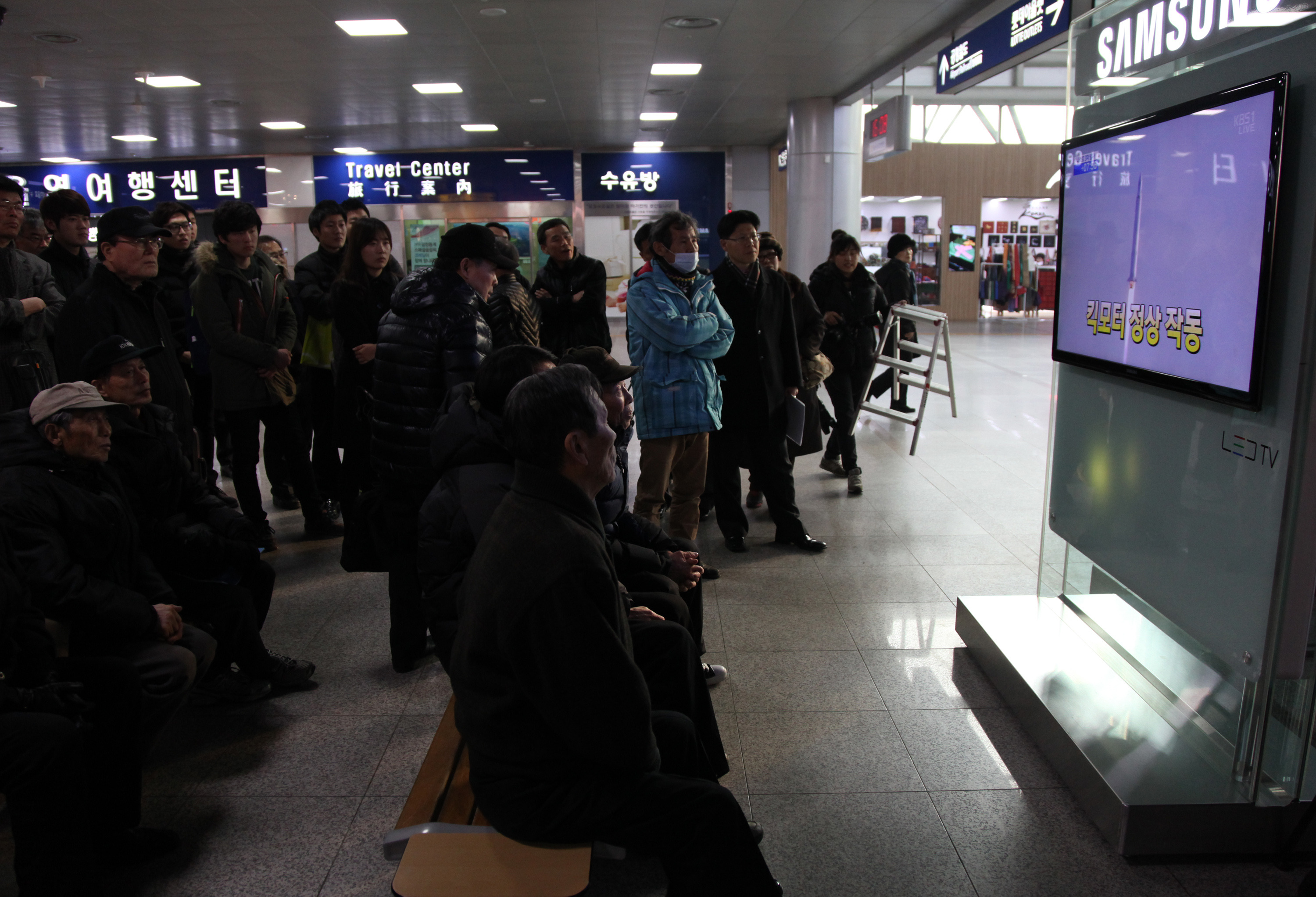
On January 30, 2013, in Seoul, South Korea, South Koreans watched the live broadcast of the launch of the Roro. Xinhua News Agency (Photo by Park Jin-hee)
SEOUL, 21 Oct (Xinhua) -- South Korea's first completely autonomously developed carrier rocket, the "Soi", was launched at the Roro-lao Aerospace Center in Kosan-gun, Jeollao-do, Gyeongjuk-do, at 17:00 local time (16:00 Beijing time) on 21 October, but the model satellite carried by the rocket failed to successfully enter the intended orbit.
The World is a three-stage carrier rocket with a total weight of 200 tons that can send 1.5-ton satellites into orbits 600 to 800 kilometers above the ground. According to the news released by the Ministry of Science, Technology, Information and Communications of the Republic of Korea and the Korea Aerospace Research Institute, the separation of the first and second stages of the rocket after liftoff was normal, and the separation of the fairing was normal, but the fuel of the third stage engine was exhausted in advance, resulting in the model satellite carried by the rocket reaching a flight altitude of 700 kilometers, but failing to reach a flight speed of 7.5 kilometers per second, and finally failed to enter orbit.
The Ministry of Science, Technology and Information And Communications of the Republic of Korea said that although the launch left regrets, as the first flight test of South Korea's independent development of a launch vehicle, its significance lies in the implementation of the main tasks of all launch stages and the mastery of core technologies.
South Korean President Moon Jae-in observed the launch process at the Luo Lao Aerospace Center on the same day and said that although it is a pity that the goal has not been perfectly achieved, the first launch has achieved very good results. If the shortcomings of today's occurrence can be examined and compensated, the second launch next May will be a complete success.
Moon also announced that he will continue to carry out five launches of the "World" carrier rocket by 2027, while more boldly challenging space exploration and striving to use the launch vehicle to realize the dream of lunar exploration by 2030.
In January 2013, South Korea successfully launched its first carrier rocket, Luo Lao, but Luo Lao was not completely "Made in Korea", its first stage was manufactured by the Russian Khrunichev National Space Center, and the second stage was developed by South Korea.